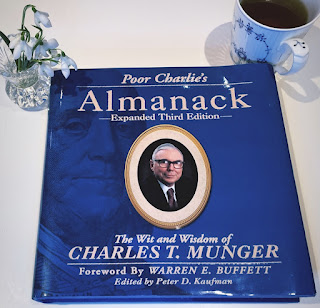What are some competitive advantages in business?
Value Investors seek to find a company that have an intrinsic value which is durable and allows the company to not only compete against their competitors but play to win! Warren Buffett calls this competitive advantage a “moat”. A moat protects a castle and Buffett project this meaning to companies: the competitive advantage has to be like a moat.
Buffett are particularly interested in these types of competitive advantages:
- A monopoly – for example a railway that’s hauling coal directly from the mines to the coal-burning power plants.
- Inflation resistant – like American Express which business model (the merchant payment fee structure) Buffett has mentioned to be “inflation resistant”
- A moat can be a “consumer monopoly” like Coca Cola, where customers are loyal to the brand’s products or Gillette, where consumers absolutely have to buy more in order to get a quality shave.
- Or an ecosystem network moat like Apple - once you’re in the eco-system, it’s difficult to leave.
Other moats can include:
- Patent moat (the company has a patent that makes it unique)
- Brand moat (the company have a strong brand)
- Real estate location moat etc. (the company has stores/restaurants/distribution/etc. in unique locations that makes the company have a unique competitive advantage over other companies in their sector or industry).
When you do your research on a wonderful company, you need to make sure you know what the company’s competitive advantage is, but not only that – you need to make sure that it’s a winner in their industry, location or sector. We can see that it’s a winner by comparing numbers like growth rates, free cash flow, ROIC and owner’s earnings, plus other numbers that are readily available through the annual reports or can be easily calculated. In my free checklist you can find a table with the needed numbers.
We usually go back 10 years to check past performance and though past performance doesn’t necessarily mean that the company will do good in the future, it’s good to know and understand the track record.
If it’s not a winner, it’s not a company, that we’re going to invest in. There’s plenty of companies out there and we will move on to the next company. If it’s a winner – congratulations! You can move on to the next step: Valuation. Read how to do that in my free checklist.






Comments
Post a Comment